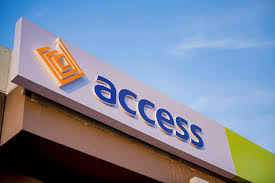In 2019, Nigeria’s banking sector experienced a major event: Access Bank, now the country’s largest bank by assets, acquired Diamond Bank, which used to be at the top of the food chain as the largest tier-2 lender in the country.
For Chiderah Azodoh who worked on the intricate corporate finance details of the merger, it was painstaking but exciting work; one she says she was privileged to be staffed on.
Azodoh is a Harvard Law School alum. She graduated from the University of Nigeria, Enugu Campus (UNEC), located in the country’s southeast, in 2016. After completing law school the following year, she dove straight into legal practice, gaining hands-on experience in the field.
“I started out in the litigation department,” said Azodoh. “I was wearing a wig and going to court for three months. During your national service, you are made to rotate at different teams at Aluko & Oyebode (now known as ALN Nigeria | Aluko & Oyebode),” she said. The firm is one of Nigeria’s most storied.
It was on one of those rotations that Azodoh scored a lucky win to work with the capital markets and mergers and acquisitions (M&A) team. At the start of her career, she had a supervising partner whom she describes as an “organised and extremely professional man” who was responsible for staffing people on interesting deals that were happening in the country.
“The exposure was incredible,” she said. “You’re having calls with CFOs all the time and you’re discussing how the things people see in the news happen. It does something to your mind; it helps you see how things work.”
As Azodoh climbed the legal career ladder at Aluko & Oyebode, she got the opportunity to work on more interesting deals, like the Access Bank-Diamond Bank merger, alongside a team of other finance professionals.
During her heydays in corporate finance, she worked as an associate on Nigeria’s GTBank’s restructuring to a subsidiary of the holding company, GTCo, in 2021. She has also sat in a similar deal for Access Bank transitioning to its holding company, Access HoldCo, in 2022. She served as an associate for telecom company MTN Nigeria issuing bonds to raise money.
As an associate on these deals, her job was to ensure that these companies were abiding by the regulations that guided restructuring, M&A, and market expansion deals. Her firm, Aluko & Oyebode, advised what licences these corporate firms needed to apply for, from central banking approvals to competition and investment permits.
On a quest to create Nigeria’s largest bank
Recounting her role in the much-publicised Access-Diamond Bank merger in 2019, Azodoh says she had just completed her one-year compulsory national service in 2018 when the deal was brewing.
Her work focused heavily on the deal’s legal aspects, particularly ensuring compliance across the work of a team of investment bankers, auditors, and anyone else involved in the deal’s many moving parts.
“Interestingly enough, in 2019 when we were still on the [Access-Diamond] deal, a new competition law came in,” she recounts. “Nigeria passed the FCCP Act which changed how mergers were happening.”
Before the Federal Competition and Consumer Protection Act, (2019) was signed by former president Muhammadu Buhari in January 2019, corporate M&A deals went through Nigeria’s Securities and Exchange Commission (SEC), which oversees the capital markets.
As part of the Investments and Securities Act, (ISA 2007)—which is now outdated—the SEC oversaw M&A deals, but with the new law, it stripped out the part of the ISA that covered these kinds of deals, making the SEC’s oversight obsolete.
“We were thrown into a loop,” said Azodoh. “Suddenly, we were at a point where we needed to understand the rules again. First, there was no enforcing authority in Nigeria for the FCCP Act. It was new, and a lot of things had not been taken into consideration.”
The FCCP Act brought in the consumer protection council which morphed into a competition authority that previously did not exist.
“Nobody understood it. It was murky waters and we were all trying to understand the new competition council. But after multiple meetings and consulting with the regulators, we were able to get the approval for the M&A deal,” said Azodoh.
Afterward, there were shareholder meetings at the two soon-to-be merged banks, and after securing the final court order, Access Bank and Diamond Bank finally merged in April 2019. Other integrations, including Diamond Bank’s delisting from the Nigerian Stock Exchange (NSE), followed.
“It was an interesting time to be a lawyer,” Azodoh recalls fondly. In a five-year stint with Aluko & Oyebode, she’d go on to work on other interesting deals which she says were less hectic, but the M&A deal, which has now created Nigeria’s largest commercial bank, easily tops her career achievement.
The pivot to fintech advisory
In 2022, Azodoh moved to the US for studies. She graduated Harvard Law school where she advanced her law qualifications in M&A, capital markets, and competition law. But rather than going down the rabbit hole in corporate finance or advising corporates, she pivoted to the more nimble tech sector.
She now works in venture financing. She advises tech companies that are raising funding, from early-stage pre-seed to latter-stage Series C, and is heavily involved in the legal aspects of the financing processes.
Before tech finance, Azodoh says two things were key to her development while working in the capital markets: first, her supervising partner at Aluko & Oyebode, who also served as her mentor. He always trusted her with marquee deals, which gave her exposure and significantly improved her confidence. Second, she became versed in finance and fintech regulations, studying what laws applied and what didn’t.
“It was technical at the beginning,” she said. “Going to law school and practicing were different ball games. I was instantly thrown into reading and assessing financial statements. I had to read a lot; I had to understand the laws and also learn how they apply in business settings.”
For example, if a company wants to buy a pension fund, you need to read the PENCOM Act, (2014), and this was only the beginning. A great corporate finance lawyer would still carry out the due diligence research to ensure that if there were converging local and international laws that apply to the transaction, they had to be factored in.
“There was the technicality and the time required, but something else made the job tougher,” said Azodoh. “Some of our laws [in Nigeria] were all over the place. You could have an organisation that had one general law and act, but then there could also be multiple guidelines which are not collated in a particular place. Yet, I think Nigeria has efficient regulatory bodies.”
The problem, though, is with enforcement, she adds, alluding to the lack of synergy among these bodies. But, she says that as she’s grown in her career, she has built a “muscle” that allows her to adjust to the legal messy work in corporate finance deals. She now applies that knowledge to her work in venture financing.
Dubai and Doha interest
While Azodoh has travelled to 23 countries, including South Africa, Vietnam, and Thailand, it was the Middle East that left the most lasting impression. The idea of living and working from the region later in the future continues to appeal to her.
In 2021, there was a tech summit in Dubai, United Arab Emirates (UAE), where robots were on display and people from all over the world gathered to witness them. Most Middle East countries have made their wealth from oil, but some of them are now looking to tech. Hosting events and actively investing in the tech sector is a positioning gameplay for these countries, said Azodoh.
“They have the money,” she said. “And this allows them to immediately invest in technologies that may take others some time to invest in.”
While moving to the Middle East is not on the cards for Azodoh right now, she says she finds the emerging tech ecosystem interesting.
It’s not hard to see why; the region offers several perks. Some countries in the Middle East—including Gulf Cooperation Council (GCC) countries Bahrain, Kuwait, Oman, Qatar, Saudi Arabia, and UAE—do not impose an individual income tax, primarily due to their vast oil wealth, which provides governments with ample revenue to support public services and infrastructure.
This tax-free environment has become a major draw for foreign professionals, especially in industries like oil, construction, finance, and increasingly, technology. These nations have positioned themselves as attractive destinations for global mobility professionals seeking higher disposable income and vibrant career prospects. Instead, they focus on taxing corporations, while others in the region, like Jordan, use progressive tax rates—which can be a little expensive.
Some of the world’s biggest technology events, including GITEX Global, Token2049 for Web3 folks, LEAP, and the Web Summit in Qatar, have been hosted in the Middle East. These events attract tech companies, investors, and industry leaders from all over the globe.
In 2024, tech startups in the Middle East raised at least $1.93 billion, including debt deals. The United Arab Emirates led the total funding, pulling in $1.1 billion in 207 deals. Other countries like Saudi Arabia, Oman, and Qatar completed the windfall. Fintechs have played a leading role in this breakthrough, accounting for a third of all funding in the region in 2024.
The oil-rich nations are also making several moves to attract tech talents to the region, offering incubation hubs and providing visa-free entry to several African countries.
It has become a hotspot for deals, making it a hotbed for tech finance practitioners. Azodoh thinks there’s a first-comer advantage for anyone planning a move to the Middle East.
However, depending on your country of origin and job type, migrating from Africa to the Middle East is possible but can be difficult. Many countries in the region have strict visa rules and checks. In some places, the Kafala sponsorship system means your employer controls your legal status. This can make it hard to change jobs or leave the country if you face problems.
Yet, buried in the risks—a mild inconvenience, if you prefer—Azodoh sees a great opportunity in migrating to the Middle East. Her ‘jealousy list’ of cities include Dubai and Doha.
—————
Mark your calendars! Moonshot by TechCabal is back in Lagos on October 15–16! Join Africa’s top founders, creatives & tech leaders for 2 days of keynotes, mixers & future-forward ideas. Early bird tickets now 20% off—don’t snooze! moonshot.techcabal.com




